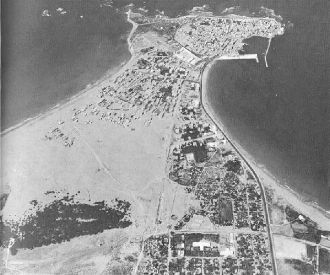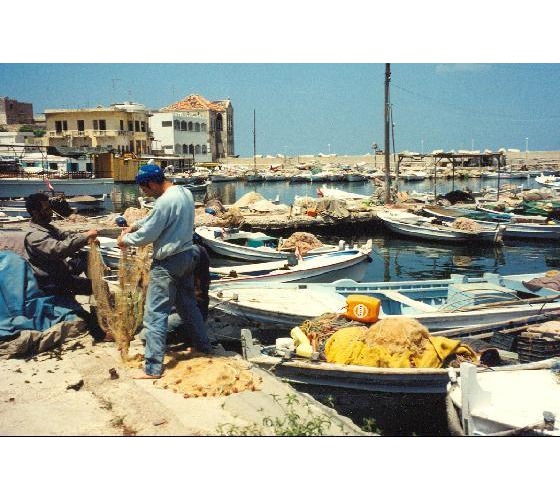
 |
Freethought & Rationalism ArchiveThe archives are read only. |
|
|
#21 | |
|
Veteran Member
Join Date: Feb 2004
Location: Washington, DC (formerly Denmark)
Posts: 3,789
|
Quote:
Instead of your condescending, ignorant posts we would appreciate that you back up your statements with some coherent arguments. Julian |
|
|
|
|
|
#22 | |
|
Senior Member
Join Date: Jan 2004
Location: Between a rock and a hard place
Posts: 916
|
Quote:
Robert Turkel refuted: Tektonics Exposed |
|
|
|
|
|
#23 | |||||||||
|
Regular Member
Join Date: Apr 2002
Location: Canton, IL
Posts: 124
|
Quote:
Quote:
Quote:
Quote:
In this prophecy, there are also other references to the "city" called Tyre that Yahweh was going to destroy. Quote:
Here are some other passages that refer to Tyre as a city. Quote:
Quote:
Quote:
Quote:
|
|||||||||
|
|
|
|
#24 | |
|
Senior Member
Join Date: Jan 2004
Location: Between a rock and a hard place
Posts: 916
|
Quote:
|
|
|
|
|
|
#25 | ||||||||||||
|
Regular Member
Join Date: Apr 2002
Location: Canton, IL
Posts: 124
|
Quote:
Quote:
Quote:
Quibbles about the "glory" of old Tyre's having been destroyed won't fly, because the prophecy was that the "city" would be destroyed and the place where it was located would become "a bare rock." Quote:
As noted in the first part of my reply, the prophecy was that Tyre would be made "a city laid waste, like cities that are not inhabited" (Ezek. 26:19). Nothing was said here about the destruction of a "glory" that would never be regained. Ezekiel was prophesying that the city would be destroyed and that it would never be rebuilt. Quote:
Quote:
Quote:
The Bible itself speaks of the rebuilding of cities. Quote:
Quote:
The Babylonians destroyed the city of Jerusalem in 597 BC, but the Bible makes several references to the rebuilding of this city. Quote:
Other biblical writers seemed to be just as ignorant as Jeremiah. Quote:
I could quote other examples, but I have already shown that Richbee's rebuilding quibble is completely without merit. Quote:
I will reply to Richbee's other "points" in subsequent posts.[/quote] |
||||||||||||
|
|
|
|
#26 | |
|
Banned
Join Date: Jan 2006
Location: Falls Church, Virginia
Posts: 264
|
Quote:
I disagree, as the modern Tyre is not a "thriving city", and not at all in the same place as the Biblical Tyre. (On this note, I met someone from Lebanon who was actually been to this back water you call a "thriving city".) Cheers! |
|
|
|
|
|
#27 | ||||
|
Banned
Join Date: Jan 2006
Location: Falls Church, Virginia
Posts: 264
|
Quote:
Quote:
Ezekiel clearly leads off his prophesy (in my Bible at least) by mentioning the King and Kingdom. Do you deny that the King of Tyre existed? Quote:
BTW, I am glad you mentioned the commercial trade of Tyre, because after Nebbie attacked, it was history, along with the King of Tyre. (Taken away in chains to Babylon?) Quote:
Tyre is no more! ;-( |
||||
|
|
|
|
#28 |
|
Banned
Join Date: Jan 2006
Location: Falls Church, Virginia
Posts: 264
|
More......
I have posted two websites with hotlinks, and this an interesting POV: PREDICTION: 1. Nebuchadnezzar of Babylon shall destroy the mainland (“field” KJV) portion of Tyre (Ezekiel 26:7-8). FULFILLMENT: 1. Nebuchadnezzar II laid siege to Tyre for thirteen years beginning in 585-586 B.C. During this time, the inhabitants transferred most of their valuables to the island. The king seized Tyre’s mainland territories but returned to Babylon, finding himself unable to subdue the island fortress militarily (cf. 29:18). Tyre, weakened by the conflict, soon recognized Babylonian authority, which effectively ended the city’s autonomy and any aspirations for a greater Phoenicia. More...... http://www.apologeticspress.org/articles/1675 |
|
|
|
|
#29 | |
|
Veteran Member
Join Date: Feb 2004
Location: Washington, DC (formerly Denmark)
Posts: 3,789
|
Quote:
 and this?  and this? Does this look like a harbor to you?  Now, Richbee, please stop. You're embarrassing yourself. Julian |
|
|
|
|
|
#30 | |
|
Banned
Join Date: Jan 2006
Location: Falls Church, Virginia
Posts: 264
|
Quote:
Sorry, what the Arabs call Soûr, or Sur, is not in the same location as ancient Tyre. (I spoke with someone who has been there.) Additionally, when Alexander the Great sold the citizens as slaves, there were no more Tyrians to rebuild Tyre. |
|
|
|
| Thread Tools | Search this Thread |
|